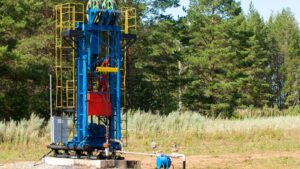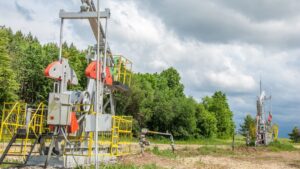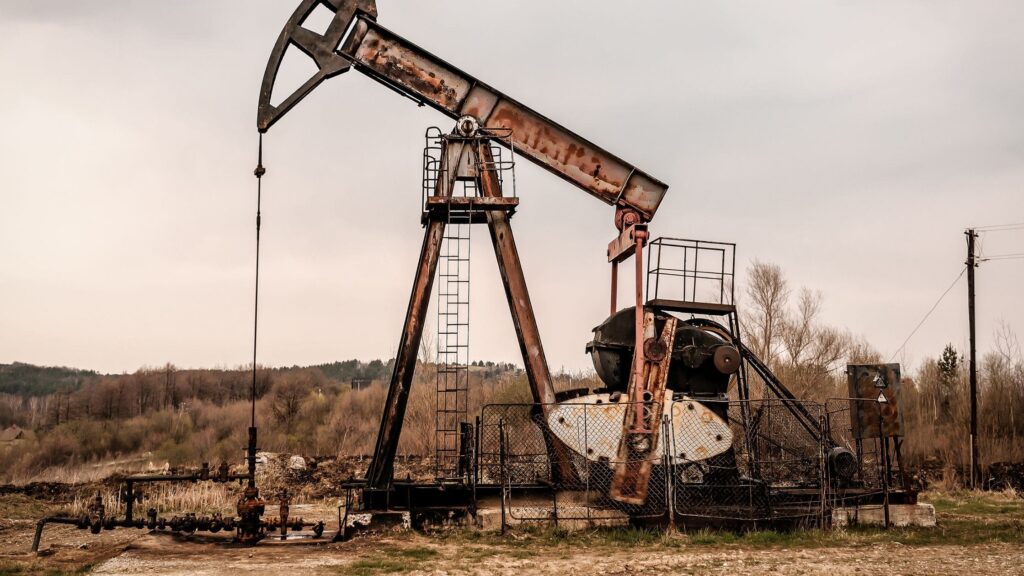How do Mineral Rights Work in Oregon?

In Oregon, mineral rights grant the holder the authority to explore, extract, and manage subsurface resources like minerals, oil, and gas. Unlike surface rights, which concern the topsoil and what stands on it, mineral rights specifically pertain to the natural resources buried beneath the land’s surface. Understanding these rights is pivotal for anyone involved in real estate or natural resource sectors in Oregon.
Surface Rights vs Mineral Rights in Oregon
When you own property in Oregon, it’s crucial to distinguish between surface rights and mineral rights. While surface rights cover everything above ground, allowing you to build homes or farm, mineral rights offer control over the extraction of underground resources. This distinction can lead to complex scenarios where one person owns the land, while another holds the rights to the minerals below. Such situations require clear legal documentation to avoid disputes and ensure that both parties’ rights are respected.
These rights are not only significant for property transactions but also for the broader real estate market in Oregon, influencing land value and development potential. For instance, knowing whether you have mineral rights can affect your decision-making process regarding land use, especially if the area is rich in valuable resources like oil or gas. Additionally, the extraction of these resources can impact the surface area, making it essential for surface right holders and mineral right owners to cooperate.
Understanding the interplay between surface and mineral rights in Oregon is not just about knowing what exists underground but also about recognizing how these rights can be managed and legally protected to benefit all parties involved. Whether you’re planning to purchase land or already own property, considering how these rights are handled can guide your decisions and strategies in the real estate and natural resource industries.
What are Major Oil and Gas Fields in Oregon?
While Oregon is not predominantly known for its oil and gas industries, there are a few areas where exploration and potential development have sparked interest. Here’s a closer look at the major oil and gas fields within the state, including their geographical characteristics:
- Coos Bay Basin: Situated along the southern Oregon coast, this area has seen exploratory efforts for both oil and gas. The basin is known for its complex geology, which could potentially harbor hydrocarbon deposits.
- Mist Gas Field: Located in the northwest part of Oregon, near the Columbia River, this field is currently the most significant producer of natural gas in the state. It represents a critical part of Oregon’s limited but essential oil and gas output.
These fields, though not as prolific as those in states like Texas or North Dakota, play a crucial role in the local economies where they are located. They contribute to energy supplies and offer insights into the geological past of the region.
What are Main Minerals Found in Oregon?
Oregon’s diverse geology not only provides scenic beauty but also houses a variety of minerals. These resources form an integral part of the state’s mining industry. Below is a list of key minerals found throughout Oregon:
- Gold: Predominantly mined in the eastern and southern parts of the state, with historical sites like Sumpter Valley and the Rogue River area still attracting prospectors.
- Copper: This essential industrial metal is found in various locations, including the Blue Mountains, where it is often mined alongside gold and silver.
- Silver: Often extracted as a byproduct of copper mining, silver in Oregon contributes to the state’s portfolio of mined minerals.
- Lead and Zinc: These base metals are typically found in the same ore bodies as copper and silver, adding to the mining diversity of the region.
- Mercury: Oregon has several cinnabar mines where mercury is extracted, notably around the Opal Creek Wilderness and the coastal ranges.
The mining of these minerals provides significant employment and economic benefits to various communities across Oregon. Understanding what minerals are present and where they can be found can be crucial for both commercial interests and casual prospectors.
How Do I Find Out Who Owns Mineral Rights in Oregon?
Discovering who holds the mineral rights to a piece of property in Oregon involves a detailed investigation process. Whether you’re considering purchasing land, starting a mining operation, or simply curious about your property’s potential resources, knowing how to navigate the ownership of these rights is essential.
How to Search for Mineral Rights Records in Oregon?
To effectively search for mineral rights records in Oregon, follow these steps to ensure you gather accurate and comprehensive information:
- Visit Your Local County Clerk’s Office: Begin your search at the county clerk’s office where the property is located. County clerks maintain land records and deeds that specify ownership details, including whether mineral rights are included with the property.
- Review Property Deeds: Check the current property deed for any clauses or exceptions that pertain to mineral rights. Often, mineral rights might have been separated from the surface rights through prior deeds.
- Access Online Land Records: Many counties in Oregon now offer online databases where you can search land records by the property owner’s name, address, or parcel number. This digital approach can speed up the process and provide instant access to vital documents.
- Consult Historical Records: If the mineral rights have been sold or transferred separately from the surface land, historical records might be necessary to trace their ownership. This can involve examining older deeds and transactions.
- Seek Legal Assistance: Due to the complexities involved in property laws and mineral rights, consulting with a real estate attorney who specializes in mineral law in Oregon can provide clarity and guidance. Legal experts can help interpret the records and advise on any necessary steps to claim or purchase mineral rights.
- Utilize State Resources: The Oregon Department of Geology and Mineral Industries (DOGAMI) can also be a resource for understanding broader mineral rights issues and for finding geographical information related to mining and mineral exploration in the state.
How Do I Claim Mineral Rights in Oregon?
Claiming mineral rights in Oregon requires navigating several legal and procedural steps. Whether you’re looking to develop a property for its natural resources or ensure your legal rights are protected for future use, here’s how to proceed:
- Conduct a Title Search: Begin with a comprehensive search of the title to confirm that the mineral rights are not previously claimed or owned by someone else. This search typically involves reviewing historical deeds and records at your local county clerk’s office.
- File a Claim with the County: If the mineral rights are unclaimed, you can file a claim at the county recorder’s office. You’ll need to provide detailed information about the property and the specific minerals you intend to extract.
- Seek Legal Advice: Consulting with a lawyer specialized in mineral rights is crucial. They can provide guidance on state laws, prepare necessary documentation, and help navigate the filing process.
- Negotiate Surface Rights: If you do not own the surface rights, you’ll need to negotiate with the surface owner. This negotiation should result in an agreement that allows you to access the minerals without infringing on the surface owner’s rights.
- Register Your Rights: Once your claim is approved, ensure all documents are correctly registered and that you comply with all state and local regulations, including any environmental assessments required for the extraction of minerals.
How Does Mineral Rights Inheritance Work in Oregon?
Inheriting mineral rights in Oregon can add a valuable asset to your portfolio, but it comes with its own set of complexities. Understanding the nuances of how these rights are transferred through inheritance can help you manage this process smoothly and effectively.
When mineral rights are bequeathed, they are treated as real property. This means they are subject to the same inheritance laws as other types of property. Here’s what you need to know:
- Review the Will: The first step is to review the deceased’s will to understand the specifics of the bequest. The will should clearly state who inherits the mineral rights.
- Probate Process: Mineral rights, like other estate assets, generally go through probate unless otherwise specified in estate planning documents such as trusts. During probate, the court validates the will and oversees the distribution of assets.
- Transfer of Deed: Once probate is complete, a new deed transferring the mineral rights to the heir(s) needs to be filed with the county recorder’s office. This deed must be detailed and clearly outline the rights and boundaries of the property.
- Manage Tax Implications: Be aware of any tax implications associated with inheriting mineral rights. Depending on the value of the mineral rights and the state’s laws, there might be inheritance or estate taxes due.
- Consider Future Use: As a new owner, consider how you wish to use these rights. You might continue leasing them, start mining operations, or even sell the rights. Each choice comes with legal and financial considerations.
Do You Have to Pay Taxes on Mineral Rights in Oregon?
In Oregon, as in many states, owning mineral rights comes with certain tax implications. Understanding these obligations is crucial for any mineral rights holder to ensure compliance and effective financial planning.
Tax Responsibilities for Mineral Rights Owners
- Property Taxes: If you own mineral rights, the assessed value of these rights contributes to your overall property valuation. This means property taxes will include the value of the subsurface minerals, which can increase your tax burden depending on the assessed value of the minerals.
- Income Taxes: Revenue generated from the extraction and sale of minerals (like oil, gas, or ores) is subject to federal and state income taxes. If you lease your mineral rights to another party, the royalty payments you receive are also taxable income.
- Severance Taxes: Oregon imposes a severance tax on the extraction of natural resources, including minerals. This tax is calculated based on the quantity and value of the minerals extracted from the land.
- Capital Gains Taxes: Selling mineral rights or receiving substantial royalties can lead to capital gains, which are taxable under both federal and state laws. It’s essential to consider the impact of these taxes when calculating the profitability of selling your rights or resources.
Practical Examples
- Example 1: If you extract $100,000 worth of minerals from your property, you must report this as income and it will be subject to income taxes at your applicable tax rate.
- Example 2: Selling mineral rights valued at $500,000 that were originally purchased for $300,000 would result in a capital gain of $200,000, which is taxable.
Understanding these tax obligations can help you manage your mineral rights more effectively and avoid any unexpected financial burdens.
How Much are Mineral Rights Worth in Oregon?
Overview of Mineral Rights Value in Oregon
The value of mineral rights in Oregon can vary significantly based on several factors including the type of minerals, location of the land, market conditions, and operational feasibility. Generally, mineral rights are valued higher in areas with proven reserves and active extraction operations.
How Much are Mineral Rights Worth Per Acre in Oregon?
To provide a clearer picture of what you might expect in terms of valuation:
- Average Price Per Acre: The value per acre can range widely, from as little as $100 to over $3,000 per acre, depending on the mineral composition and potential for extraction. For instance, areas with known quantities of valuable minerals like gold or copper might command higher prices.
- Comparative Analysis
Comparing these values with other states, Oregon’s mineral rights can be less lucrative than those in states like Texas or North Dakota where oil and gas production is more extensive and profitable. However, for specific minerals like gold and silver, which are found in certain Oregon locales, the rights can be quite valuable.
How Much Are Mineral Rights Worth in Oregon?
Understanding the value of mineral rights in Oregon involves several factors including the type of mineral, the current market demand, and the productive capability of the land. Whether you are considering selling your rights or simply want to know their potential worth, here’s a breakdown of their value.
Leasing Mineral Rights Value
Leasing your mineral rights can be a profitable option if you are not ready to sell. The value of leased mineral rights depends largely on:
- Royalty Rates: Typically, you can expect to receive a royalty percentage ranging from 12% to 20% of the gross production value of the minerals.
- Lease Terms: The length of the lease and any upfront bonus payments also affect the overall value of leasing your mineral rights.
Non-Producing Mineral Rights Value
Non-producing mineral rights, those which are not currently being extracted or where no reserves have been proven yet, hold speculative value. This value is generally lower because it is based on potential rather than actual yield. Factors affecting their value include:
- Geological Surveys: Indications of mineral presence from geological data can increase value.
- Area Comparables: Prices in nearby areas with production history.
Producing Mineral Rights Value
Producing mineral rights are those from which minerals are actively being extracted. They are the most valuable and can be appraised based on:
- Current Production Rates: Higher extraction rates usually increase value.
- Commodity Prices: The market price of the extracted minerals plays a significant role.
- Reserve Reports: Documentation on the quantity of remaining minerals boosts confidence in continued production, thereby increasing value.
How Do You Buy Mineral Rights in Oregon?
Purchasing mineral rights in Oregon is a significant investment decision that requires careful consideration and several key steps. Here is how to proceed:
- Identify Available Rights: Research property listings or consult with land agents specialized in mineral properties in Oregon to find available mineral rights.
- Conduct Due Diligence: Investigate the historical and current use of the land, any previous mineral rights transactions, and assess the geological potential of the property.
- Legal Consultation: Hire a lawyer experienced in mineral rights to help navigate the legal aspects, ensure the rights are clear of encumbrances, and that the sale adheres to Oregon state laws.
- Negotiate Terms: Work out the terms of the purchase, including price, transfer of title, and any contingencies related to mineral exploration and extraction.
- Close the Deal: Complete the transaction with a formal agreement, ensuring all legal requirements are met and the deeds are properly recorded in the county where the property is located.
Purchasing mineral rights can offer a rewarding return on investment, especially in a resource-rich state like Oregon. Whether for immediate production or future development, owning mineral rights gives you a stake in the lucrative mining and natural resources industry.
How To Sell Your Mineral Rights in Oregon?
Selling mineral rights in Oregon can be a lucrative decision if handled correctly. It involves understanding the market and navigating legal procedures to ensure a beneficial transaction. Here are practical steps to guide you through the process:
- Evaluate the Worth: Before listing your mineral rights for sale, assess their current market value based on factors like location, mineral type, production history, and current market conditions.
- Consult with a Specialist: Work with a lawyer or a real estate agent who specializes in mineral rights. They can offer crucial insights and guidance, ensuring that all legal aspects of the sale are handled properly.
- Prepare Necessary Documentation: Gather all legal documents that prove your ownership and any past production records. These documents are essential for transparency and can significantly expedite the sale process.
- Market Your Mineral Rights: Use platforms specialized in real estate or mineral rights sales to reach potential buyers interested in such investments.
- Negotiate Terms: Be prepared to negotiate terms with potential buyers. It’s crucial to understand the implications of the sale agreement, including any royalties or retainments.
- Close the Deal: Finalize the sale with all necessary legal documentation and ensure proper recording with the local county office to officially transfer the rights.
How Do I Transfer Mineral Rights in Oregon?
Transferring mineral rights, whether through sale, inheritance, or as a gift, requires attention to legal detail and proper documentation. Here are steps to ensure a smooth transfer process:
- Draft a New Deed: A new deed is essential for the transfer of mineral rights. This document should specify the details of the rights being transferred and must be drafted according to Oregon state laws.
- Sign in the Presence of a Notary: To validate the transfer, the deed must be signed by the current rights holder in the presence of a notary.
- Record the Deed: File the signed deed with the county clerk’s office where the property is located. This step is crucial as it updates the public record, officially noting the change in ownership.
- Notify the Lessee: If the mineral rights are leased, notify the lessee of the transfer to ensure all future payments or communications are directed to the new owner.
- Consider Tax Implications: Understand any tax responsibilities associated with the transfer of mineral rights to ensure compliance with federal and state tax laws.
Conclusion
In navigating the complexities of mineral rights in Oregon, understanding the nuances of ownership, valuation, buying, selling, and transferring these rights is crucial. By following the outlined steps and considerations, you can effectively manage your mineral rights, ensuring compliance with legal standards and maximizing their potential value.
FAQ
Do Mineral Rights Expire in Oregon?
No, mineral rights in Oregon do not expire. Once you own mineral rights, they remain with the land indefinitely unless legally transferred through sale, lease, or inheritance. This permanence ensures that rights holders can exploit the resources at any future time, subject to state regulations.
What Happens to Oregon Mineral Rights When Someone Dies?
When a mineral rights holder in Oregon passes away, their rights are transferred to their heirs or as dictated by their will. If no will exists, the rights are distributed according to state inheritance laws. This transfer is integral to maintaining the continuity of ownership and management of the rights.






